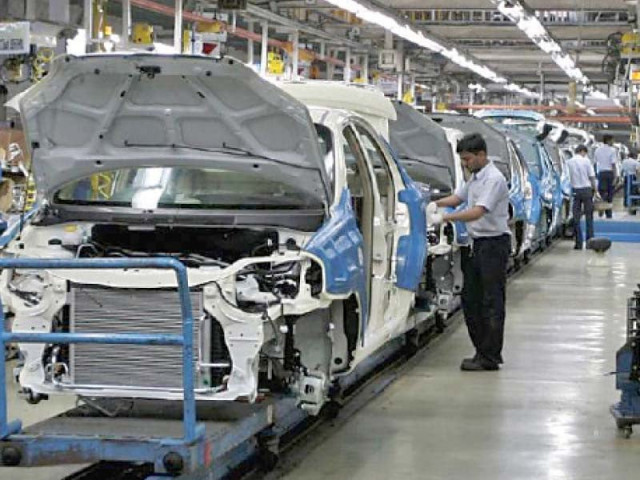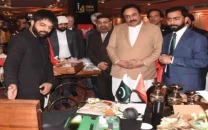Experts aim to formalise informal economy
ILO, SMEDA host key meeting with auto parts makers, propose incentives and reforms for SMEs

A major meeting took place in Lahore on Saturday where over 40 auto parts manufacturers and small business stakeholders came together to discuss ways to help Pakistan's informal businesses and workers join the formal economy.
The session was organised by the International Labour Organisation (ILO) and Small and Medium Enterprises Development Authority (SMEDA), a government agency under the Ministry of Industries and Production. Experts and industry leaders shared challenges, ideas, and solutions to create a fairer and stronger economic system for small and medium enterprises (SMEs).
During the event, officials stressed the importance of moving informal businesses into the formal sector, explaining that registered companies gain better access to loans, government support, and international markets. This shift, they said, would improve working conditions, protect workers' rights, and help businesses grow sustainably.
For example, Nadia Jahangir Seth and Sheharyar Tahir from SMEDA highlighted how formalisation could drive economic growth and create stable jobs. "Supporting enterprises in their transition from informality is vital for inclusive and sustainable economic growth," they noted. Formal enterprises benefit from better access to finance, government support, and international markets, enabling them to grow sustainably while creating decent jobs and protecting workers' rights.
Several key ideas emerged from the discussions. One proposal was to create a single online system where SMEs could pay all government fees and taxes, reducing paperwork and corruption. Another focused on providing special financial services for small businesses, such as low-interest loans and flexible repayment plans. Participants also urged the government to reserve a portion of public contracts for SMEs, ensuring they get fair opportunities to compete.
Instead of punishing informal businesses, attendees suggested offering incentives to encourage them to formalise. For instance, SMEs that bring their suppliers into the formal sector could receive rewards. There was also strong support for building dedicated industrial zones for small businesses, complete with shared facilities and affordable factory spaces. Additionally, the idea of forming an independent SME council was proposed to represent the sector's interests and push for policy reforms.
Naeem Ansari from the ILO emphasised the need for ongoing dialogue between businesses, workers, and policymakers to refine these plans. He stated that formalising SMEs is not just an option but a critical step for Pakistan's long-term economic stability and growth. The meeting concluded with a shared hope that, with the right policies and collaboration, Pakistan's informal sector could become a powerful engine for job creation, exports, and national prosperity.























COMMENTS
Comments are moderated and generally will be posted if they are on-topic and not abusive.
For more information, please see our Comments FAQ